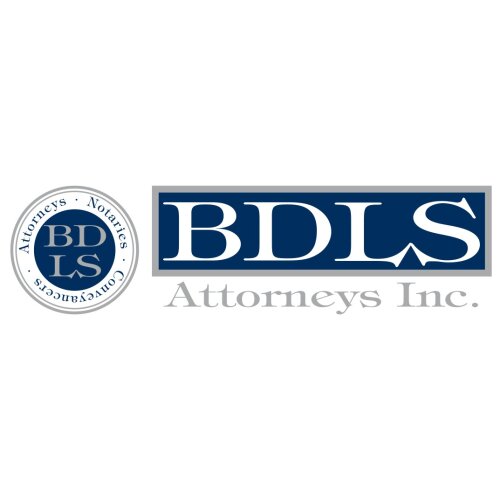Best Employer Lawyers in Port Elizabeth
Share your needs with us, get contacted by law firms.
Free. Takes 2 min.
List of the best lawyers in Port Elizabeth, South Africa
About Employer Law in Port Elizabeth, South Africa
Employer law, also known as labor or employment law, in Port Elizabeth revolves around the legal relationship that exists between employers and employees. This legal field covers a wide range of topics including working conditions, employment contracts, unfair dismissal, discrimination, and compensation, among others. The South African labor laws are primarily governed by the Labour Relations Act and the Employment Equity Act, ensuring that employees are protected from unfair labor practices while promoting a fair working environment.
Why You May Need a Lawyer
Having a lawyer for employer-related issues can be vital in certain circumstances. An employer law attorney can provide you with valuable advice when reviewing or negotiating employment contracts, and assist you in understanding your rights and obligations as an employer. Similarly, if you find yourself dealing with a difficult situation such as an unfair dismissal, discrimination complaints, or wage disputes at the workplace, having legal representation can ensure you navigate the legal process effectively and professionally.
Local Laws Overview
Key aspects of employer laws in Port Elizabeth include adherence to fair wages, appropriate working conditions, right to collective bargaining, and prevention of discrimination. The Labour Relations Act establishes procedures for resolution of labor disputes, guarantees the right to strike, and protects workers from unfair dismissal. The Employment Equity Act promotes equal opportunity and fair treatment in employment through elimination of unfair discrimination and implementing affirmative action to redress the disadvantages in employment experienced by designated groups. The Basic Conditions of Employment Act sets out the minimum conditions of employment to which workers are entitled.
Frequently Asked Questions
What obligations do employers have to their employees?
Employers are legally required to provide safe and healthy working conditions, to pay employees agreed-upon wages, and to respect the rights of employees as outlined in their contracts and in legislation.
What should I do if I believe I have been unfairly dismissed?
If you believe that you have been unfairly dismissed, you should consult with a lawyer experienced in employment law. They can provide you with guidance and support through the process of filing a claim with the relevant authorities.
What protection do I have against discrimination in the workplace?
The Employment Equity Act protects employees from any form of unfair discrimination. This covers age, race, gender, religion, disability, or any other arbitrary ground.
Can I be required to work overtime?
Yes. However, according to the Basic conditions of Employment Act, the overtime must be agreed upon, and the employee must be paid 1.5 times the normal wage rate for overtime work.
Can my employer change my contract without my agreement?
No. An employment contract can only be changed through mutual agreement between the employee and the employer.
Additional Resources
You might find useful information on the websites of Department of Labour or the Commission for Conciliation, Mediation and Arbitration (CCMA). It's also worthwhile to familiarize yourself with the Labour Relations Act and the Employment Equity Act.
Next Steps
If you need legal assistance related to employment law, it’s recommended to engage a lawyer who specializes in this area. They can guide you through the complexities of the law and advocate for your best interests. Prior to your initial meeting, it's advisable to gather any relevant documents and information related to your situation.
Lawzana helps you find the best lawyers and law firms in Port Elizabeth through a curated and pre-screened list of qualified legal professionals. Our platform offers rankings and detailed profiles of attorneys and law firms, allowing you to compare based on practice areas, including Employer, experience, and client feedback.
Each profile includes a description of the firm's areas of practice, client reviews, team members and partners, year of establishment, spoken languages, office locations, contact information, social media presence, and any published articles or resources. Most firms on our platform speak English and are experienced in both local and international legal matters.
Get a quote from top-rated law firms in Port Elizabeth, South Africa — quickly, securely, and without unnecessary hassle.
Disclaimer:
The information provided on this page is for general informational purposes only and does not constitute legal advice. While we strive to ensure the accuracy and relevance of the content, legal information may change over time, and interpretations of the law can vary. You should always consult with a qualified legal professional for advice specific to your situation.
We disclaim all liability for actions taken or not taken based on the content of this page. If you believe any information is incorrect or outdated, please contact us, and we will review and update it where appropriate.










